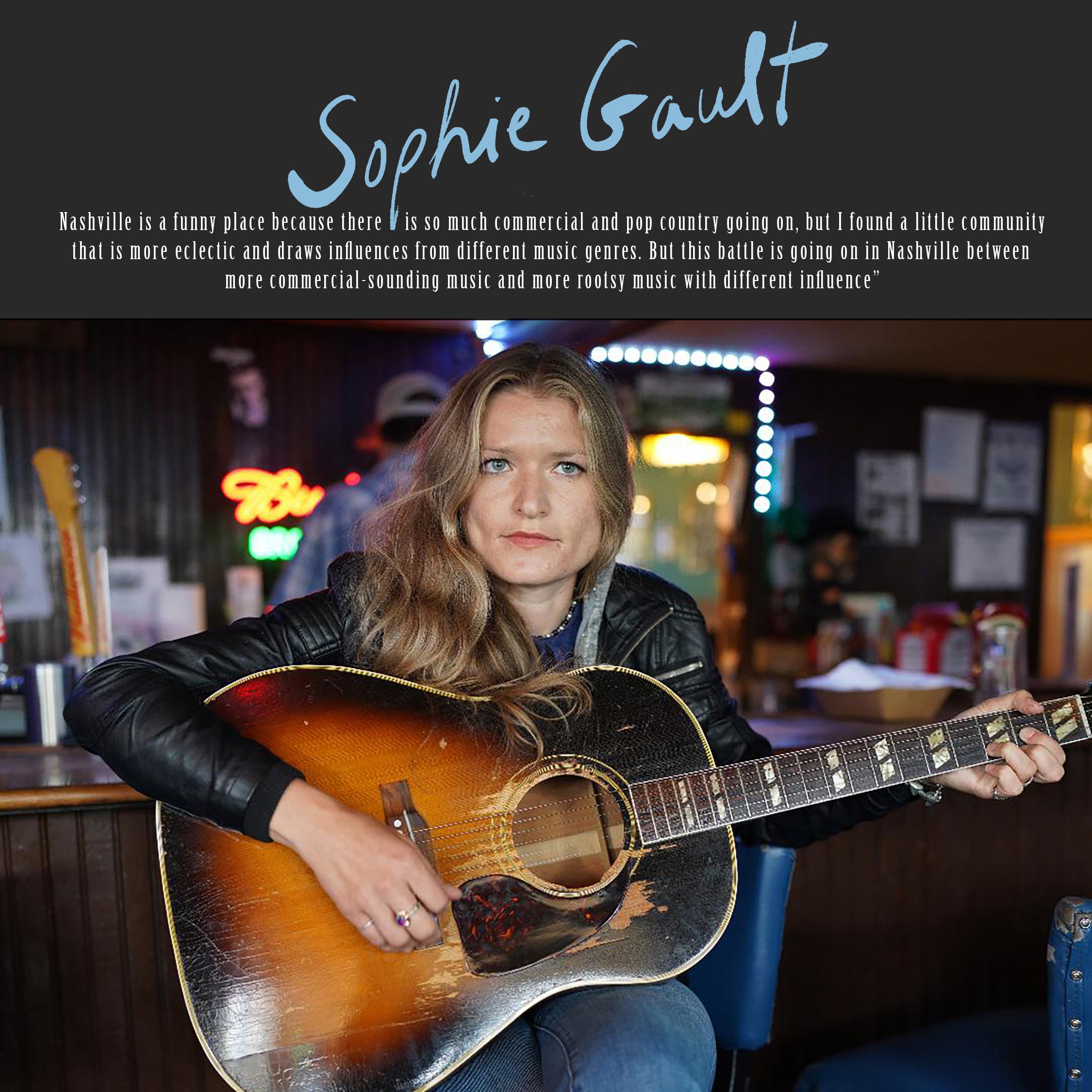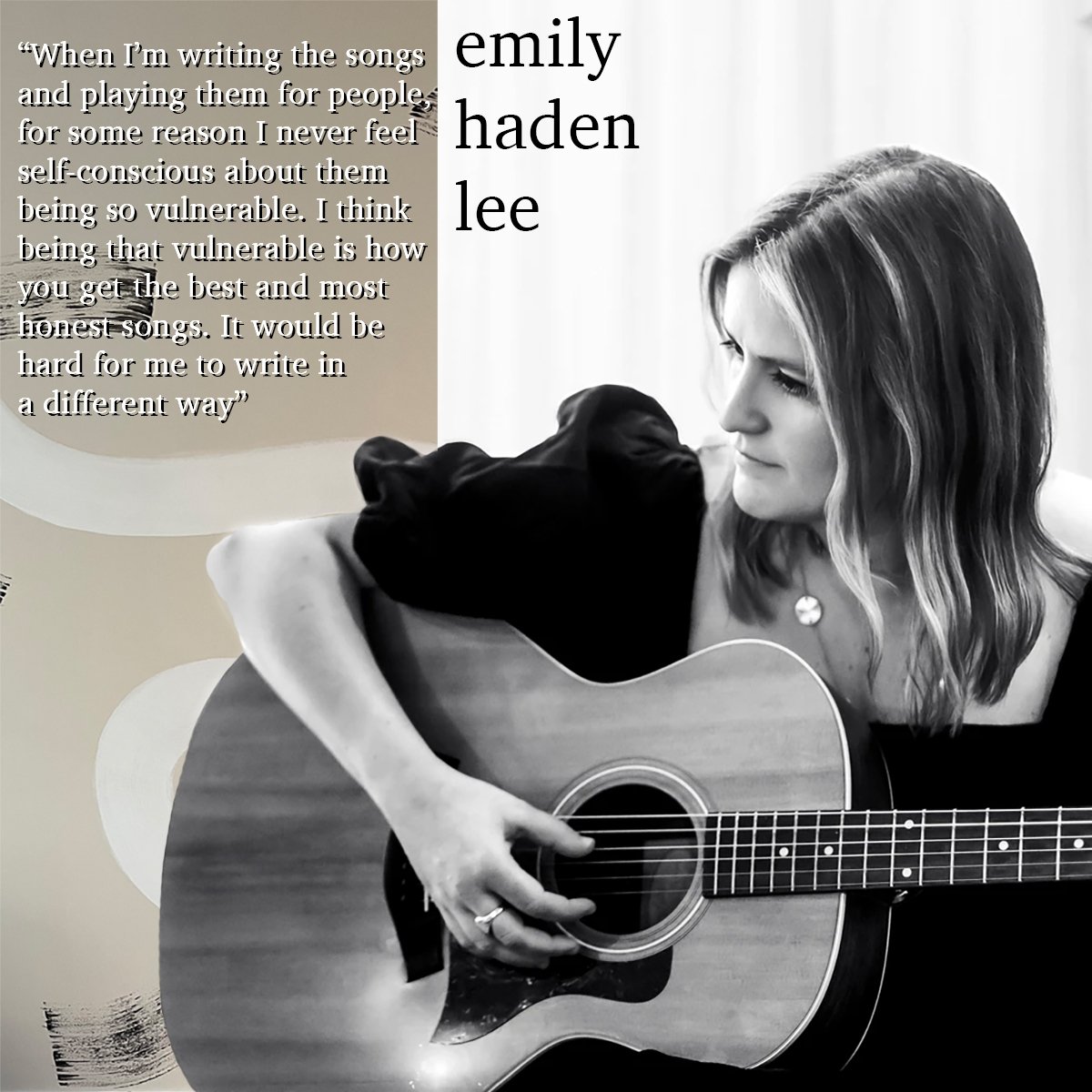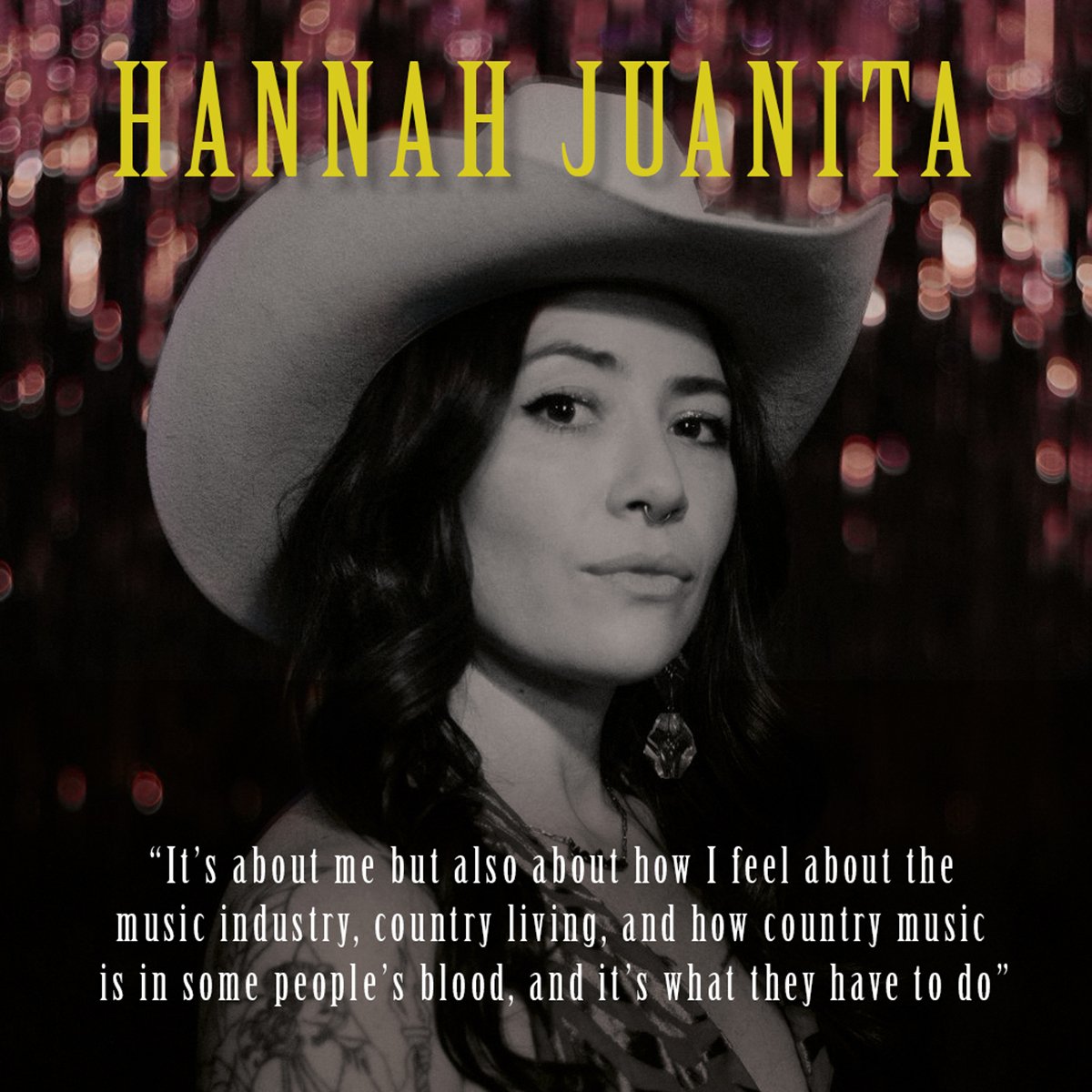Georgia-born artist Kristina Murray has been a leading light in the underground East Nashville traditional country music scene for over a decade. From performing at the legendary dive joint downtown, Santas Bar, or being one of the earliest artists to perform at, and put Honky Tonk Tuesdays at The American Legion on the map, she has remained steadfastly true to country music. LITTLE BLUE is her third full album and will be released on the Normaltown/New West label on May 9th. Kristina worked with two producers on the record, Rachael Moore (Robert Plant, Hayes Carl, Alison Kraus, Bob Dylan) and Misa Arriaga (Kasey Musgraves, Lillie Mae, Joshua Hedley), and the album features many of her close friends from the East Nashville community. The saying ‘the cream always rises to the top’ comes to mind on multiple spins of our review copy of the album, which should result in a hugely wider profile and audience for one of the most authentic country vocalists and songwriters of the past decade.
You had the new album completed last year and were patiently waiting for the correct time to release it. Since then, Normaltown / New West have signed you, and it's due for release on May 9th.
A lot of patience, a lot of 'long time coming' stuff but I'm so glad to be with New West and Normaltown now. They're great folks and have an incredible artist roster and legacy, and I'm very happy to be a part of that family now.
What does getting signed mean to you having been an independent artist up to this point?
I don't come from money or have mommy and daddy wealth, which often has a lot to do with being able to pay for people to hear your music. Up to this point, I've been a DIY musician, basically doing everything myself. Previously, I would have had to pay out of my pocket for publicity, social marketing, help with digital streaming and radio promotion. That is all being done inhouse now by the label and with their reach, reputation, stamp of approval and history of excellent artists, hopefully that will get me beyond where previously I have been able to on my own.
You worked with two producers, Misa Arriaga and Rachael Moore, on the new record LITTLE BLUE. Was that by design or logistically?
Logistically. Misa had worked on the two cover tracks I did in 2021, and I had been chatting with him in 2022 about working with me on this record. I met Rachael through my boyfriend Cory, who, like Rachael, was working with T Bone Burnett. She came and saw me play with my band and said she'd love to do some tracks with me, had some studio time available in Muscle Shoals and asked if me and the band wanted to come and see what we could work out. So, I ended up having this group of songs I did with Rachel in Muscle Shoals that I thought were album-worthy, and I already had the tracks from the project with Misa. The two groups of songs just came together and were sonically cohesive and were able to become an album rather than two EPs. I had a little bit of luck as well as a little bit of calculation.
Where in Muscle Shoals did you record?
We recorded at a historic studio there called East Avalon Recorders; it's an old 1970s house studio. It was early February 2023, in the middle of winter, and my whole road band was free at the time, it was cool to get out of Nashville and do some recording there. We went down for two days and recorded for seven or eight hours each day, packed up and returned home.
The playing on the album is top-notch, and the musicians who contributed were a collection of your band members and close friends.
For my last full album, SOUTHERN AMBROSIA, I had amazing session musicians like Fred Eltringham, Kris Donegan, Rob McNelly and Michael Finne. I'm glad to have experienced that. I've been in Nashville for a long time now, and many of my friends played on this record, including Frank Rische, who sang on my last record; he plays guitar and sings on the new record. Eddy Dunlap plays pedal steel and my road band members James Mitchell is on guitar and Jonathan Beam on bass. Dominic Billet, who I first started playing with when I moved to Nashville, plays drums.
Given your history of playing downtown at Santas Bar and being one of the earlier artists to play at Honky Tonk Tuesdays and helping it become an institution, have you felt any resentment that other artists were signed to labels while you remained independent?
The short answer is yes, but a huge lesson for me is understanding that it is not all about the artist and the music; it is about the business. The business creates competition, there is no inherent competition in art. Making a career out of your art is a business and if you are not business minded, which I'm finding out that I have not been for the past twelve or fifteen years. Success is defined differently from person to person, and many deserving artists have incredible careers. I also see other artists and wonder why their music is so popular, maybe they have an incredible booking agent or just get signed to a label. I can't do anything about that except put my head down, keep writing, making good music and connections in my community and learning to be a better musician and writer in my own right and hope that the wonderful people who have championed me all these years continue to do so and continue to spread that gospel.
Were there times you felt like packing your bags and moving out of Nashville?
Living in Nashville as a musician is great, being able to go out and listen to live music and make connections with other artists is a huge bonus of living here, though I'm not sure if I would live in Nashville if I wasn't a musician. Like anyone who dedicated their life to this very difficult art form, you sometimes think about quitting. It's such a mountain of a thing to deal with, the tic-toking, the algorithms, Spotify; it's very heavy when all you want to do is continue writing and making good music, country music in my case. Wouldn't it be great if I could have a mortgage with that? That's not the case right now. It might sound corny, but I didn't come this far to only come this far; that is how I've been feeling for the last few years.
You stuck to your guns, playing and recording 'real' country music, as is the case with the new album LITTLE BLUE. Were you ever tempted to dumb it down and go in a more mainstream direction?
I'm never going to be a commercial country artist and I'm fine with that. What I hear on country radio is not for me at all, it's so far from the country music that I love and is almost indistinguishable from pop music. That's fine for people who like that music, but being a commercial country artist was never on the radar.
Your patience has paid off as classic country music is gaining popularity year on year.
There is a hunger for the country right now. For me, classic country is the 50s and 60s, true writing and that sonic sound of the fiddle, pedal steel or dobro. It's funny, when I think of 90s country these days, often being described as a classic country. Now people see Trisha Yearwood, Alan Jackson and Mark Chestnutt as classic country, whereas, for me, that was 90s country with its own sound. That sound is now in a renaissance with some of the newer acts like Zack Top, which I love because it means people are hungry for a more traditional sound and authenticity. Country music is having its moment now with even Beyonce and Post Malone bringing out country albums, but when that moment passes, and it will, I'll still be here making country music.
Over what period were the songs on LITLE BLUE written?
The oldest song on the record is the co-write with Logan Ledger, Get Down To It, which we wrote just before the pandemic. For my first two records, it was a case of recording the ten songs that I had at that time; luckily, they felt cohesive as a collection of songs. For this record, I could choose from a large collection of songs I had written over a five-year period. I was able to pick nine songs that are thematic and work well together, and it feels good right now because I have a head start on album number four, with a number of songs that were passed over for this record.
Is the album's title a reflection of your mindset at the time of writing?
Yes, you're spot on. There is a through line throughout the record of deep sadness like in the track Fool's Gold, when the music business was making me crazy and also Has Been, and Watchin' The World Pass Me By. You Got Me is a love song, and also sprinkled across other songs is a fight to find the light even though you might be experiencing a low-level depression, which I can honestly say happened.
Watchin' The World Pass Me By is obviously also autobiographical. It's not difficult to pick up the frustration in the song's lyrics.
I wrote that one as an exercise to myself to get things out of my system. I was trying to write a Waylon-type outlaw song, and it moved more toward the Texas songwriter Jerry Jeff Walker's direction. It ended up being very autobiographical; I was writing out of frustration and whoever I was mad with at the time, which seems so silly now.
Fool's Gold would have been a completely different song had it ended at three and a half minutes. The additional minute and the arrangement in that space are exceptional.
You're right; I'm so glad you said that because that, to me, is the standout track on the record, and I hope it gets recognised as that. The guitar playing, pedal steel, and piano on that track are great examples of how the melodic musical component complements the lyrical component. It was a magical moment when we heard how the track's ending all came together.
I also love Just A Little While Longer; it's classic country through and through.
Yes, Frank (Rische) sings on that one. That one with Frank and Fool's Gold with Erin Rae singing have some of my favourite vocal combinations. For me, the second verse of that song has some of my best vocal work. It is way down on the track listing, but for people who love listening to full albums, it's a hidden gem.
How difficult was the sequencing on the record?
Sequencing can be really tough; it's really an art form. We knew we wanted You Got Me and After Midnight Special near the top of the album. I also love the idea that the song You Got Me starts the record with the word 'and.' I love starting a whole album by bringing you in mid-sentence to the story I'm about to tell.
Phenix City tells a weighty story; is it based on fact or fiction?
It's a story song, not necessarily based on anyone I know. I was in this small town in Alabama when I got the idea and the hook line for the song. Although I wrote it about this small town in Alabama, it's very applicable to many small struggling towns in America right now. It's a sister song to Slow Kill from my last album, about desperation, hopelessness, and pervasive drug use, which is a huge part of American culture right now.
Your album launch show at Skinny Dennis in East Nashville takes place on the actual day that the album is released.
Why did I do that to myself? It's going to be a big blow-up party.
Will you get to Europe in the near future?
I had such a blast when I got over there last year and would love to get to Europe every year. I have been getting good traction with the singles from the album over there, and I hope that gets to the point where I can get back there.
Interview by Declan Culliton





















